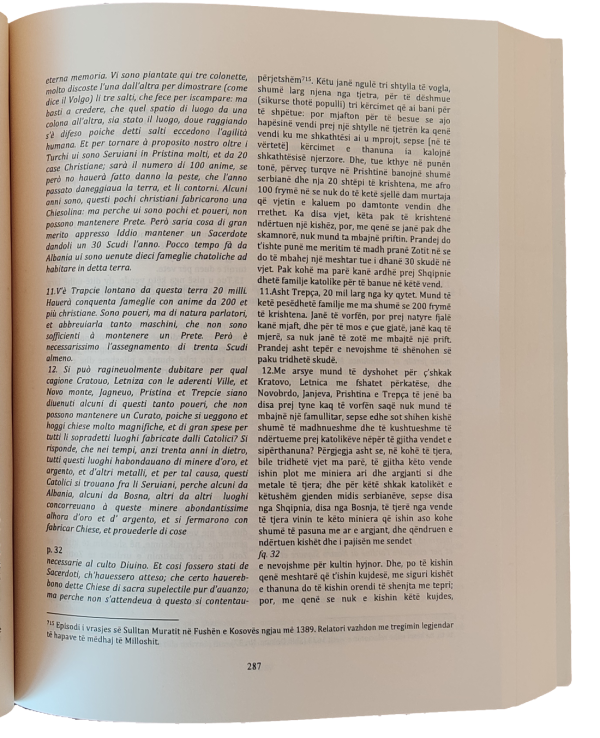1623, Pjetër Mazreku

Then it continues to Prishtina, a place inhabited by many Turks, warlike people, who are all timar-spahi, i.e. lord of villages. This place is located under the black mountains in the plain of Kosovo, not far from the place where Millosh Kobiliqi, a brave and valuable soldier, killed Muratbeu, the emperor of the Turks, and lost his life after a long time, but in vain, it was planted bravely; and hence his eternal memory remained. Three small pillars are stuck here, far apart from each other, to witness (as the people say) the three jumps you made to escape: but it is enough to believe that the space from one pillar to the other was the place where with dexterity he acquired, for [indeed] the dances of the thanuna surpass human dexterity. And, back to our work, in addition to the Turks, many Serbians live in Pristina and some 20 Christian houses, with nearly 100 people, if the plague that last year was ravaging the country and the districts did not bring it. For several years, these few Christians have been building a chapel, but since they are few and poor, they cannot support the priest. Therefore, it would be a job with great merit before God if a priest were to be kept and they gave him 30 scudas a year. Some time ago, two Catholic families came from Albania to live in this country.
Source: Zamputi, Injac (2018). Relations and documents for the history of Albania 1610–1650. St-Galen, Pristina: Faik Konica, p. 286–287. Original document: (Translation: Injac Zamputi).